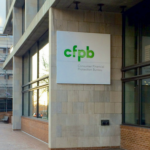I’m thrilled to announce that Bedard Law Group is the new sponsor for the Compliance Digest. Bedard Law Group, P.C. – Compliance Support – Defense Litigation – Nationwide Complaint Management – Turnkey Speech Analytics. And Our New BLG360 Program – Your Low Monthly Retainer Compliance Solution. Visit www.bedardlawgroup.com, email John H. Bedard, Jr., or call (678) 253-1871.

Every week, AccountsRecovery.net brings you the most important news in the industry. But, with compliance-related articles, context is king. That’s why the brightest and most knowledgable compliance experts are sought to offer their perspectives and insights into the most important news of the day. Read on to hear what the experts have to say this week.
Appeals Court Affirms Ruling for Defense in FCRA Case
The Ninth Circuit Court of Appeals has upheld a lower court’s ruling that an employer does not violate the Fair Credit Reporting Act by providing a disclosure simultaneously with other documents and not using a standalone document for the authorization. More details here.

WHAT THIS MEANS, FROM KELLY KNEPPER-STEPHENS OF TRUEACCORD: Good news from the Ninth Circuit for employers who conduct background checks (everyone in the credit and collection industry). The FCRA requires employers who use a consumer report in their background check process to provide a “stand alone” disclosure to all applicants. Mr. Luna applied for a job with Hansen and Adkins Auto Transport. When he applied he filled out lots of paperwork, including a disclosure on a separate page that said at the top FAIR CREDIT REPORTING ACT DISCLOSURE STATEMENT. Underneath that heading the page explained that reports “verifying previous employment records, previous drug and alcohol tests, and driving record will be obtained for employment purposes.” It also mentioned that this is similarly required by the Federal Motor Carrier Safety Regulations. Mr. Luna ended up suing under the FCRA alleging that the employer did not give the notice in a stand alone way because it was given with all the other hiring paperwork and the authorization signatures appeared on the same page.
Can you imagine if an employer could only give one federal notice at a time to prospective employees? It might take a week in some cases just to fill out the paperwork. Or, if you had to have a completely separate page for the authorization than the disclosure. Think about the extra paper or even the longer docusign forms.
Well, both the District Court and the Ninth Circuit dismissed Mr. Luna’s claims in Luna v. Hansen and Adkins Auto Transport. The court found the company properly gave the notice on a separate piece of paper with a clear heading that is included in the decision (and has Mr. Luna’s signature on it). The Ninth Circuit has other decisions on how an employer must present these required FCRA disclosures and in the recent past found that the disclosure and authorization cannot contain any extraneous information. But for today, it can appear in a hiring package with other disclosures and forms.
THE COMPLIANCE DIGEST IS SPONSORED BY:

Appeals Court Affirms Summary Judgment in FCRA Case
The Court of Appeals for the Fifth Circuit has upheld a lower court’s grant of summary judgment in favor of a pair of defendants accused of violating the Fair Credit Reporting Act by not properly investigating a dispute filed by an individual. More details here.

WHAT THIS MEANS, FROM AYLIX JENSEN OF MOSS & BARNETT: The Fair Credit Reporting Act (“FCRA”) requires that upon receiving notice of a dispute from a consumer, a credit reporting agency (“CRA”) must conduct a reasonable reinvestigation of the information in that consumer’s file. 15 U.S.C. § 1681i(a)(1)(A). In this case, the consumer filed a lawsuit under the FCRA, alleging that the CRAs’ reinvestigations were unreasonable because they did not contact the creditor directly to verify the disputed information.
The FCRA does not clearly define what constitutes a “reasonable reinvestigation,” leaving courts to fill in the gaps. However, the FCRA requires CRA’s to “implement an automated system through which furnishers of information to [CRA’s] may report the results of a reinvestigation…” Section 1681i(a)(5)(D) (emphasis added). Thus, unsurprisingly, the Fifth Circuit agreed with the district court that verifying a consumer’s dispute through the Automated Consumer Dispute Verification system constitutes a reasonable reinvestigation for purposes of the FCRA.
This decision offers important insight into the meaning of a “reasonable reinvestigation” by a CRA. Importantly, the decision suggests that requiring CRA’s to contact a creditor directly to verify disputed information, as argued by the consumer, might be an overstatement of the CRA’s obligations under Section 1681i(a)(1)(A).
Supreme Court Denies Petition to Hear Arguments in FCRA Case
The Supreme Court yesterday declined to hear arguments in a Fair Credit Reporting Act case in which the plaintiff sued the federal government and three credit bureaus because they did not properly investigate his claims of identity theft, refusing to rectify a split at the Circuit Court level on the issue. More details here.

WHAT THIS MEANS, FROM STEFANIE JACKMAN OF BALLARD SPAHR: Of course, it is unfortunate when the Court declines to resolve a circuit split because such splits present increased compliance challenges and potential litigation risk. But it also is not surprising since this is far from the first time the Court has declined to hear a case, even when such a split exists. The Court declines to hear almost all of the petitions it receives – in civil matters, the Court grants less than 5% of the petitions it receives each year. Having certiorari granted always is unlikely, no matter the circumstances.
Also, while the presence of a circuit split generally is regarded as a factor that may influence the chances of a petition being granted, it is far from the only factor considered by the Court. Instead, the Court considers a variety of factors – both internal and some external – to determine which petitions present the “right fit” for resolution, clarification, or some other evolution by the Court at that time. In short, the Court has limited resources and cannot resolve all of the issues that are presented to it. For whatever reason, four or more members of the Court simply did not find the Fourth Circuit’s decision to uphold the doctrine of sovereign immunity to prevent a claim against the federal government to present a situation that was compelling enough to warrant certiorari over other pending petitions. However, nothing about that presents the issue from arising again in other circumstances when the “time is right.”
Judge Grants MTD in FDCPA Case Over Rounding Discrepancy in Settlement Offer
A District Court judge in Indiana has granted a defendant’s motion to dismiss because a plaintiff relied “too heavily” on the strict liability of the Fair Debt Collection Practices Act in trying to argue that a rounding error which created a $0.01 difference in the amount of a settlement error constituted a material violation of the law. More details here.

WHAT THIS MEANS, FROM BOYD GENTRY OF THE LAW OFFICE OF BOYD GENTRY: Strict liability is only 99.9998% accurate. The takeaway from this case is that not every false statement is actionable. Some false statements, even as to dollars and cents, are immaterial.
Here, the parties consented to Magistrate Judge Brookman, a fine jurist with a keen sense of the obvious. The debtor claimed she was “confused” because a collection letter offered a settlement of $350.84, with three payment options. One of the three payment options offered to SIF the debt in exchange for three (3) payments of $116.95, which would equal $350.85 and not $350.84, a one cent difference.
The debtor claimed that her decision to pay the debt was impacted by this one cent difference. She alleged a claim under 15 U.S.C. 1692e(10). The court granted the debt collector’s motion to dismiss because the one cent difference was “immaterial to the unsophisticated consumer’s decision of whether or not to accept this settlement option.” Collection agencies would do well to double-check the math of SIF offers to avoid this type of litigation.
Lawsuit Totals Drop in March, But Less Than Expected
Even though the coronavirus pandemic essentially shut down the country for the second half of March, the number of lawsuits filed against collection agencies was roughly the same as were filed in February, according to data released yesterday by WebRecon. More details here.

WHAT THIS MEANS, FROM ANDREW HALL OF ESTATE INFORMATION SERVICES: The fact that the number of law suits filed against collection agencies did not change much from February to March is no surprise to me at all. Most collectors across the country are working from home where their agencies have such capability. However, it wasn’t until mid-March where this started happening on a large scale. Several state licensing authorities require agencies to have a branch license for each collector who works remotely, and a few other states do not normally allow collectors to work from home at all. It wasn’t until mid-March when these states started issuing memos and various guidance statements providing that the restrictions around work-from-home were being lifted, and/or that enforcement action would not be taken against agencies who allowed collectors to work remotely. A result of the work-from-home situation is that collectors have seen greater contact rates, though that does not necessarily translate into more payments. The bottom line is that collection calls are still being made, and the Plaintiff’s bar will always find a way to sue collection agencies.
Warren, Brown Issue Proposal to Protect Consumers During Pandemic, Includes Pausing All Debt Payments
Sen. Elizabeth Warren [D-Mass.] and Sen. Sherrod Brown [D-Ohio] yesterday released a proposal that calls on Congress to enact additional consumer protections, including allowing consumers to pause any and all of their debt payments for the duration of the coronavirus pandemic, because “bills keep coming and debts keep piling up.” More details here.
Law Profs Take Aim at CARES Act, Call For Moratorium on Collections Until Pandemic is Over
A trio of law professors have published a paper in the Illinois Law Review calling the economic stimulus being offered through the Coronavirus Aid, Relief, and Economic Security (CARES) Act a “gimmick” that will not do enough and calling on Congress to “fix its mistakes” by, among other things, initiating a moratorium on debt collection. More details here.

WHAT THIS MEANS, FROM PATRICK NEWMAN OF BASSFORD REMELE: Two principles ring true in the consumer credit and collection world. First, it is vital to a credit-based economy that consumers pay for the goods or services they acquired on credit. Second, consumers need to be treated fairly throughout the collection process.
These agreed tenets absolutely can coexist — even while we all face the unique circumstances presented by the COVID-19 pandemic. Unique times call for unique measures. But proposed moratoriums on debt collection during the pandemic, while well-intended, miss the mark.
The collection industry has already committed to keeping the stimulus money consumers have received off limits, despite what some lawmakers have suggested to the contrary. In fact, agencies and creditors’ rights law firms are taking active measures across the country to ensure that stimulus money not be garnished.
What’s more, collection agencies are experiencing a significant increase in the number of consumers reaching out seeking to resolve their debts. Consumers are affirmatively using the time and opportunity created by the pandemic to focus on their finances and are choosing to resolve their debts with funds they do have available. Moratoriums — again, well-intentioned — would foreclose this unique opportunity for consumers who choose to voluntarily honor their debts.
Without question, the COVID-19 situation has been terrible in many ways, but it has also created a unique opportunity for consumers and the industry to work together in a manner that is both fair and beneficial to the American economy and consumers. So let’s forego moratoriums and instead work to make this opportunity a “win-win” for consumers and their creditors.
Minn. Commerce Dept. Extends Work-From-Home Guidance
The Minnesota Department of Commerce on Friday issued regulatory guidance extending its safe harbor for collection agencies that have debt collectors working from home during the coronavirus pandemic. More details here.
North Carolina Extends Debt Deferral Relief Program
In a move that could be followed in other states, the North Carolina Department of Insurance yesterday extended an order for an additional 30 days that requires debt collectors to offer deferrals of debt payments to individuals living in The Tarheel State as a means of providing relief from the COVID-19 crisis. More details here.
States Join Together to Offer Relief for Private Student Loan Collections
A number of states — California, Colorado, Connecticut, Illinois, Massachusetts, New Jersey, Virginia and Washington — enacted additional collection regulations aimed at providing expanded relief for individuals with private student loans, including prohibitions against certain collection activities, which will remain in place during the coronavirus pandemic. More details here.

WHAT THIS MEANS, FROM MITCH WILLIAMSON OF BARRON & NEWBURGER: When Was first asked to comment on COVID-19 related activity in several specific states and regions I wondered what one set had one do with another as they varied in tone and effect. That’s the point. The differences are continuing evidence of the inconsistencies we have to live with.
The North Carolina Order extended by an additional 30 days a prior Order for a brief moratorium regarding payments for insurance premiums (property and health) and debts. The prior Order was set to expire on April 26 is now extended to May 27. It also extended the reporting period to insurance companies for coverage. But the “policyholders or consumers must pursue the option to defer payment.” Under the circumstances not unreasonable. By limiting the Order to thirty day periods it indicates a desire to share the burden caused by the COVID 19 crisis between all stakeholders and for only as long as circumstances warrant it.
Vermont did not issue an order but a request, limited to private student loan servicers, in an effort to bring them into line with federal student loan borrowers covered under the CARES Act. It requests (not requires) that several options be offered to borrowers: forbearance of payments for a minimum of 90 days, waiving applicable late fees, protections for negative credit reporting and ceasing collection lawsuits for 90 days and working with borrowers to enroll them in appropriate assistance programs, such as income based repayment. Of note is a line in the press release issued by the Office of the Governor of Vermont: “DFR (“Vermont Department of Financial Regulation”) examiners will favorably consider prudent and reasonable actions taken to support relief for borrowers during the pandemic.” Several other states, California, Colorado, Connecticut, Illinois, Massachusetts, New Jersey, Virginia and Washington have joined in the Vermont initiative. There’s a PR message here for those who read it.
Minnesota went in a different direction, offering relief not to consumers but to collection agencies, issuing regulatory guidance allowing “individual registered collectors” to work from home. This is an important detail, and does raise questions. The Guidance states that an individual can work from home provided there is some supervision from the agency, there is no in-person contact with consumers and they are working at home due to the COVID-19 crisis. My question is – what about collection law firms? My suggestion would be for any law firm seeking to have collectors work from home they seek additional clarification from the Michigan Commerce Department because the regulatory guidance is simply not clear.
A few weeks ago I discussed proposed regulations for New Jersey, as of today, those regulations are still under discussion with the next hearing on the proposed legislation set for May 7.
Nothing’s ever simple.
ACA International Sues Mass. AG Over Emergency Regs
ACA International is suing the Attorney General of Massachusetts for enacting emergency regulations that deprive the association’s members of their right to free speech because debt collectors are prohibited from initiating communications with individuals while a state of emergency is in place in the state while it deals with the coronavirus pandemic. ACA International has also filed an emergency motion for a temporary restraining order and preliminary injunction enjoining enforcement of the guidance. More details here.

WHAT THIS MEANS, FROM CARLOS ORTIZ OF HINSHAW CULBERTSON: Citing medical and financial hardship from the COVID-19 pandemic, Massachusetts Attorney General Maura Healey filed an emergency regulation banning most types of debt collection during the COVID-19 pandemic. The regulation is scheduled to remain in place until at least late June, 2020. ACA International’s lawsuit challenging that regulation and seeking a temporary restraining order and preliminary injunction from its enforcement could have significant implications for creditors and debt collectors who debt collect against Massachusetts residents and for other states who are considering issuing similar type regulations. In general, the regulation makes it an unfair or deceptive act or practice for creditors and debt collectors to engage in various types of activities, including initiating, filing, or threatening to file a new collection lawsuit or initiating, threatening to initiate or acting upon any legal or equitable remedy for the garnishment, seizure, attachment, or withholding of wages, earnings, property, or funds for the payment of debt to a creditor. The regulation also prohibits debt collectors, as well as first-party service providers collecting on behalf of creditors in the creditor’s name, from initiating telephone calls to a debtor. Among the key arguments that the ACA makes in the lawsuit is why federal and state statutes that are already in place in Massachusetts to regulate debt collection are not sufficient to address the concerns that triggered the emergency regulation. For instance, in Massachusetts, debt collectors initiating communications via telephone to debtors risk liability for per se violations of M.G.L. Ch. 93A, which subjects those who engage in “unfair or deceptive act[s] or practice[s]” to damages, which may be trebled, equitable relief, and attorneys’ fees. In the event the ACA prevails in this lawsuit, it could dissuade other jurisdictions for putting into place similar laws. On the other hand, should the court not rule in favor of the ACA, that could prompt a flurry of other debt collection emergency laws throughout the U.S. Given that many are anticipating that the economic fallout from COVID-19 will be long-lasting, the stakes in this lawsuit are high, as other jurisdictions may feel pressure to put more debt collection laws into place, and will be closely watching how the lawsuit concludes. As an example, Washington, D.C. already has in place a temporary ban on outbound debt collection efforts.
On May 1, the judge in this suit heard arguments on ACA’s motion for a TRO and preliminary injunction, and advised the parties that the earliest he would rule would be on May 5.
States Join Together to Offer Relief for Private Student Loan Collections
A number of states — California, Colorado, Connecticut, Illinois, Massachusetts, New Jersey, Virginia and Washington — enacted additional collection regulations aimed at providing expanded relief for individuals with private student loans, including prohibitions against certain collection activities, which will remain in place during the coronavirus pandemic. More details here.
Vermont AG Issues Reminder That Stimulus Funds Are Exempt From Garnishment Under State Law
T.J. Donovan, the Attorney General of Vermont, has issued a directive to debt collectors, creditors, and financial institutions reminding them that economic stimulus payments made to residents of the state are protected from being garnished under state law. More details here.
Indiana Supreme Court Exempts Stimulus Funds From Garnishments
The Indiana Supreme Court yesterday ruled in an emergency order that funds deposited into the bank accounts of individuals from the Coronavirus Aid, Relief, and Economic Security Act (CARES Act) are to be exempted from new garnishments, and individuals with existing garnishments are entitled to an urgent hearing to give the Court the chance to determine from where the funds originated. More details here.

WHAT THIS MEANS, FROM ETHAN OSTROFF OF TROUTMAN SANDERS: The recent actions of the Indiana Supreme Court and Vermont Attorney General are examples of state-based emergency protection initiatives that rely on state laws to expand the reach of the Federal CARES Act. While Congress certainly intended these payments to help families meet their basic needs, it is not clear that it contemplated these one-time cash payments were to be protected from seizure by creditors and debt collectors – otherwise Congress would have included language to the effect in the CARES Act.
To be clear, there is no state law in Indiana or Vermont exempting stimulus payments from garnishment and attachment. Instead, Indiana and Vermont rely on the Congressional intent behind CARES Act and state rulemaking authority to exempt garnishing the emergency stimulus payments that their respective citizens received from the federal government. As the lone dissenting Justice of the Indiana Supreme Court correctly pointed out, “nowhere did Congress declare these payments to be off-limits to collectors and creditors. And, to date, neither has [Indiana’s] legislature.”
Vermont is no exception and arguably stands on shakier ground when compared to Indiana. The Vermont Attorney General’s recent Directive does not carry the weight of an order from the state’s highest court, and instead relies on the language of the Vermont garnishment statute to support the contention that CARES Act payments are akin to the state’s exemption that “compensation for loss of future earnings” is exempt from garnishment or collection as “property traceable to [an individual’s] right to receive, to the extent reasonably necessary for the support of [an individual].”
Unless and until the governors of these two states call a special session of their respective general assemblies to enact legislation codifying CARES Act payments as exempt from garnishment under Indiana and Vermont state law, the recent position adopted by the Indiana Supreme Court and Vermont Attorney General may be subject to challenge.
This, however, does not mean stakeholders should continue business as usual in either of these two states. Rather, the foregoing examples should remind the collections industry that state-based consumer protections during the COVID-19 emergency have varied widely from state-to-state and will continue to present unique challenges for businesses operating across multiple jurisdictions.
I’m thrilled to announce that Bedard Law Group is the new sponsor for the Compliance Digest. Bedard Law Group, P.C. – Compliance Support – Defense Litigation – Nationwide Complaint Management – Turnkey Speech Analytics. And Our New BLG360 Program – Your Low Monthly Retainer Compliance Solution. Visit www.bedardlawgroup.com, email John H. Bedard, Jr., or call (678) 253-1871.









